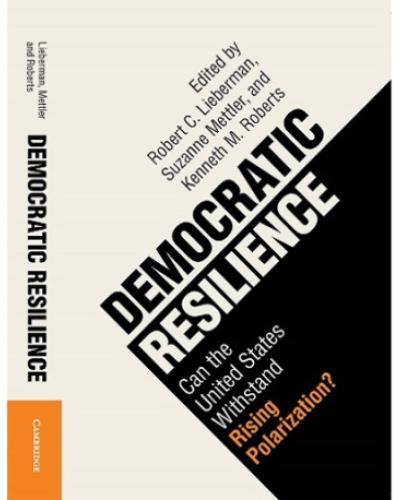Politics in the United States has become increasingly polarized in recent decades. Both political elites and everyday citizens are divided into rival and mutually antagonistic partisan camps, with each camp questioning the political legitimacy and democratic commitments of the other side. Does this polarization pose threats to democracy itself? What can make some democratic institutions resilient in the face of such challenges?
Democratic Resilience: Can the United States Withstand Rising Polarization? (Cambridge University Press, 2021), a new co-authored book by Suzanne Mettler, Kenneth Roberts, and Robert Lieberman, brings together a distinguished group of specialists to examine how polarization affects the performance of institutional checks and balances as well as the political behavior of voters, civil society actors, and political elites. The volume bridges the conventional divide between institutional and behavioral approaches to the study of American politics and incorporates historical and comparative insights to explain the nature of contemporary challenges to democracy. It also breaks new ground to identify the institutional and societal sources of democratic resilience.
Suzanne Mettler, the John L. Senior Professor of American Institutions in the Department of Goverment at Cornell University
Kenneth Roberts, the Richard J. Schwartz Professor of at Cornell University
Robert Lieberman, Krieger-Eisenhower Professor of Political Science at Johns Hopkins University








